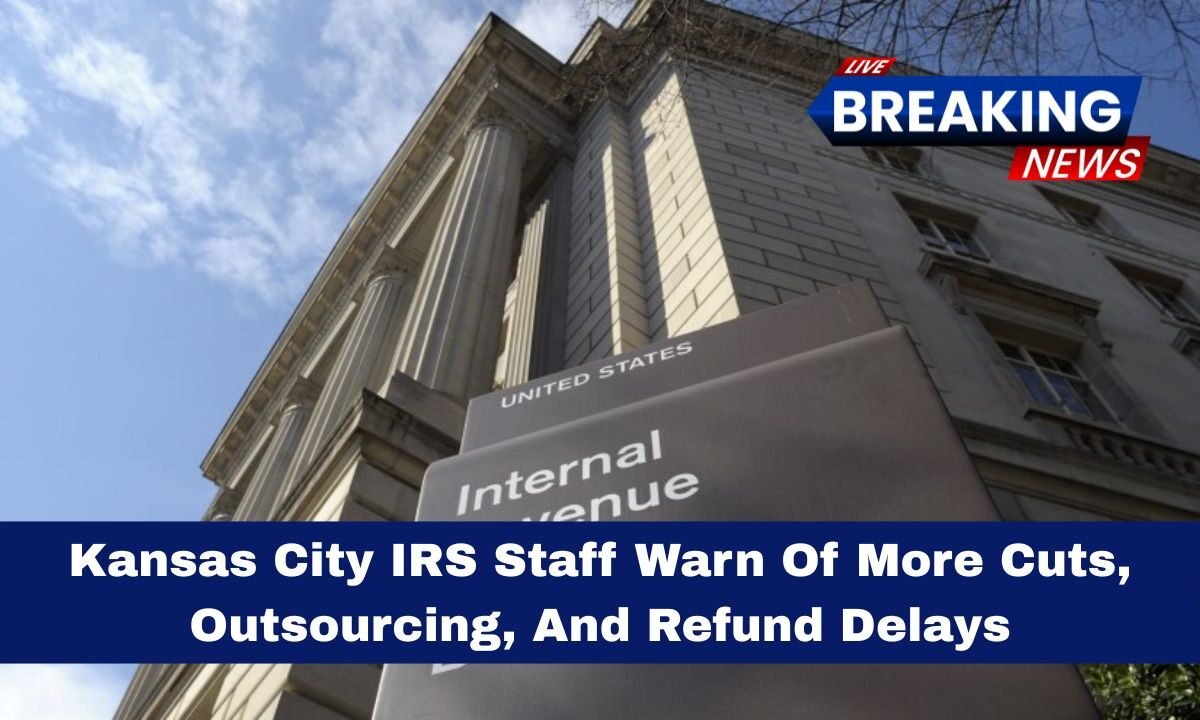Employees at the Kansas City IRS Submission Processing Center are warning about more staff cuts, expanded outsourcing, and potential tax refund delays heading into the next filing season.
Workers say the agency’s push toward paperless (“zero-paper”) processing and the shifting of tasks to outside vendors could reduce on-site staffing at the exact moment when return volumes and taxpayer correspondence surge.
Why This Matters For Taxpayers
When staffing dips during peak season, the IRS has fewer trained hands to open mail, verify identity documents, process paper and amended returns, and resolve notice responses.
That increases the odds of:
- Longer refund timelines for returns that require manual review.
- Slower correspondence resolution, especially when a case needs human verification.
- Reduced in-person assistance if local Taxpayer Assistance Centers operate with fewer staff or shorter hours.
What’s Driving The Warnings
Front-line workers point to three overlapping pressures:
- Staff Reductions: Probationary and short-tenure roles are often the first at risk when cuts occur, creating a skills gap during the toughest weeks of filing season.
- Outsourcing & Mail Flow: When more tasks move to private vendors—including mail handling and document transport—even small routing errors can snowball into backlogs if procedures aren’t airtight.
- Technology Transition: The move to digitize paper and accelerate e-file uptake is helpful long-term, but in the short run it can strain teams who must keep legacy processes running while new tools, training, and quality checks come online.
What To Expect If You File Soon
Most e-filed, error-free returns still tend to move quickly.
The greatest risk of slowdown sits with paper returns, amended returns (Form 1040-X), Identity Protection PIN issues, injured spouse claims, and correspondence that requires caseworker review.
To minimize delays, taxpayers should file electronically, use direct deposit, and respond promptly to any IRS letters.
Quick Facts And Impact Summary
| Area | What’s Changing | Likely Impact | Who’s Affected Most | Risk Level* |
|---|---|---|---|---|
| Staffing | Fewer on-site roles, emphasis on paperless workflows | Slower manual processing during peaks | Paper & amended filers; notice responses | High |
| Outsourcing | More reliance on outside vendors for logistics/tasks | Potential mail routing issues if guidance is unclear | Filers mailing returns or evidence | Medium–High |
| Paperless Push | Expansion of e-filing and digital intake | Long-term speed gains; short-term training gaps | Complex cases needing scans/reviews | Medium |
| Taxpayer Assistance | Lean staffing at help centers | Longer waits for appointments and ID checks | Walk-ins, first-time filers, ITIN applicants | Medium |
| Customer Service Lines | Fewer agents during spikes | Longer hold times, slower case lookups | Anyone calling during March–April peaks | Medium–High |
*Risk reflects near-term pressure during peak weeks of the 2025–26 filing season.
Practical Tips To Avoid Delays
- E-file early and choose direct deposit to bypass paper bottlenecks.
- Double-check Social Security numbers, bank details, and credit schedules (CTC, EITC) before submitting.
- Keep all IRS letters and respond by the listed deadline; include clear copies of requested documents.
- If you must mail something, use trackable delivery and keep proof of mailing.
- For identity issues, enroll in an IP PIN early and store it securely.
The Kansas City IRS hub is heading into the next filing season amid staffing uncertainty, a technology transition, and a growing role for outside vendors.
Those realities can create pinch points in mail handling, paper return processing, and notice resolution—the exact areas that matter most for taxpayers waiting on a refund.
Filing electronically, opting for direct deposit, and responding quickly and accurately to any IRS letter remain the most reliable ways to keep your refund on track despite the current pressures.




